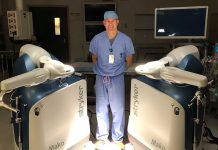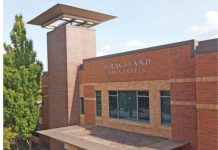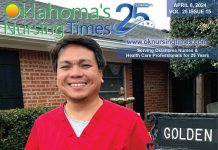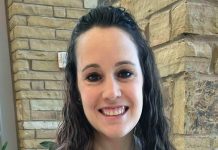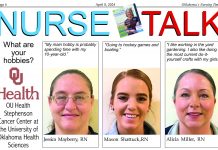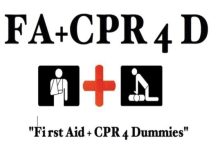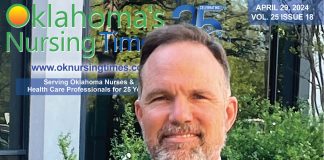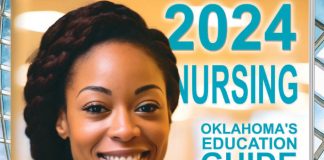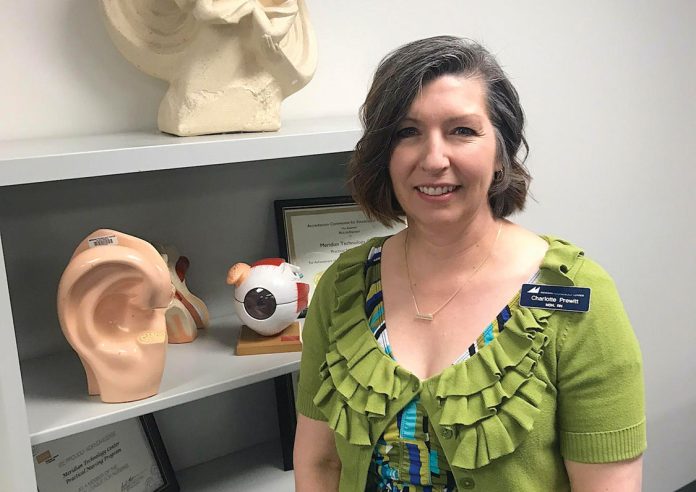
story and photo by James Coburn, Staff Writer
Meridian Technology Center has a mission to educate, enrich lives and secure economic futures. Adult students from 10 area school districts may apply for the practical nursing program, said Charlotte Prewitt, a practical nursing instructor at Meridian Technology Center in Stillwater where she has worked since 2007.
“We have a really flexible program that allows adult students who are working to get an education,” Prewitt said. “Meridian’s administration is very supportive with whatever resources we need to help educate. It makes it a really well-rounded and affordable program for an adult to come to if they want to become a practical nurse.”
Nursing student Audra Staires said she enjoys the reward she gets from helping people. The Flex program helps make that possible for her.
“Coming here is very convenient. I am able to be close to home and to my job,” Staires said. “I get to pick the hours that I’m here, and I know how many hours I need. It’s flexible around my personal life and my work life.”
Meridian Technology Center is a 12-month program that teaches all aspects of being a safe and confident LPN. A new cohort begins every six months. Some schools offer 18-month programs.
Students in the Stillwater 12-month program need to complete prerequisites before enrolling at Meridian Technology Center. The faculty consists of three instructors and the LPN nursing coordinator who pool their resources to support their students.
“It depends on how many qualified applicants we have, but we can accept up to 18 students every six months,” Prewitt said.
There are nine theory classes and four clinical classes. Students are eligible to take the licensure exam upon their completion of the program. Graduates earn the credential of LPN after passing the test.
Prewitt earned her Master of Science degree in Nursing in 2009 from Regis University, located in Denver.
She received her associate degree in 1991 from Northern Oklahoma College. In 2006 she earned her Bachelor of Science in Nursing degree from Graceland University in Lamona, Iowa.
Prewitt began her career as a medical surgical nurse for one year on the post-op floor of Stillwater Nursing Center before transferring to the emergency room for several years. She completed her 16 years of nursing at Stillwater Nursing Center by serving in the outpatient infusion clinic before she began teaching.
Prewitt was also a CPR instructor when she worked in the ER. She enjoyed the one-on-one interaction with the community, and ENT students extending their knowledge base in an emergency setting.
“It further triggered a little spark to want to teach. A few years before that I decided that was the path I wanted to go and furthered my education to do that,” she said.
The nursing programs work with several clinical locations to secure their students’ job placement. Once students have experience at a given facility, even before they finish with the program, they are often invited to come back for an interview after completing the practical nursing program. Job leads are also posted for their graduates via emails or on Meridian’s Facebook website. Most of the students who graduated recently have found jobs or have good prospects.
“Getting to see them get into a practice as a calling is very satisfying,” Prewitt said.
The average nursing student is in their mid to late 20s and comes with a diverse range of life skills and experiences. One of Prewitt’s favorite things is witnessing her students become more confident as she coaches them for their clinicals. Afterwards, she hears them say, “That wasn’t half as bad as I thought it was going to be.”
A past graduate student of Meridian Technology Center’s nursing program will mentor students during the clinicals.
Instructors often find opportunities to attend student graduations when earning advanced nursing degrees.
“We’ve had several students who have gone on to become nurse practitioners,” Prewitt said.
More nurse educators are needed in the profession, Prewitt continued. More nurses are needed to bridge the gap of a long-time nursing shortage. But the nursing shortage will not be resolved without more nurse educators to teach them, Prewitt explained.
“I love what I do. I loved taking care of patients and I did that for years. But as a nurse educator, you get to add to that level of satisfaction by putting more nurses out into the world and it’s just like that little ripple,” Prewitt said. “When you are at the bedside with a patient, you can make a difference with that one patient. But when you have 15 students go out into practice, whoever they’re taking care of just gets bigger.”


